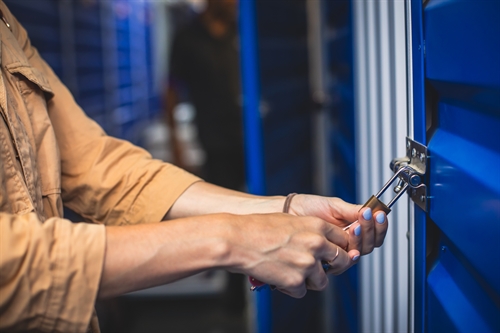One of the roles of an executor is dealing with the deceased person’s possessions, including things kept in a storage unit. You will also be responsible for bills from the storage company until the unit is emptied and the account wound up.
Grief and your loved one’s possessions
Dealing with a loved one’s possessions after death can give rise to strong emotions, and it’s a task best carried out when you feel ready, rather than according to an arbitrary timetable. You may find yourself working to a deadline to clear a deceased person’s home, particularly if it is rented, but you can continue paying for a storage unit until you are ready to work through the contents.
On the other hand, you might not have any emotional attachment to the stored possessions, and that is normal, too!
Check credit card and bank statements for storage bills
Some executors only learn about a storage unit when the direct debits stop going out and the storage company gets in touch by letter or by calling emergency contacts that they have on file. You can pre-empt this by checking financial statements for outgoings related to self-storage, or by looking for letters or emails from a storage company among the deceased’s papers.
How do you get access to a deceased person’s storage unit?
In an ideal world, you’ll have the documentation and any keys and codes needed to open the storage unit. But if you didn’t know about the storage unit, or your loved one didn’t make arrangements for you to access their self-storage, you may have a longer process on your hands.
Let the storage company know what’s happened. A decent storage company will be sensitive in its dealings with bereaved relatives. In general, the storage manager will want to see the death certificate and documentation proving that you are the executor and then they should let you into the unit.
It’s best to continue paying the storage bills out of the estate even if you can’t yet get access to the storage unit, as this will ensure the stored goods are kept safe. Costs of self-storage vary around the country, and will go up and down depending on the facilities at the storage centre. If you’re concerned about the bill for your deceased relative’s self-storage, we have a few tips to reduce it.
Make an inventory of the storage unit
Let’s go back briefly to that ideal scenario: you have an inventory of everything in the inherited storage unit and you can use it to quickly work out what to do with the contents. Most storage companies will require an inventory as part of the contract; or your loved one may have noted down what they’ve got. But you may find yourself with an out-of-date list, or a list of items like:
- 8 boxes of books
- suitcase
- electronic equipment
- garden furniture
It’s best to check the contents of your loved one’s storage unit for yourself to get a better idea of what you’ve got before you decide what to do with it.
Is the contents of my relation’s storage unit worth anything?
It can be hard to assess the value of a storage unit’s contents from a quick glance, and of course, only you and your family can assess the sentimental value of a deceased person’s possessions. Our article about valuable items in storage has some advice, or you might find this article about valuing stored goods useful.
Once you know what is in your deceased relative’s storage room, you can decide how to dispose of their goods, whether it is donating them, recycling them or keeping items for yourself and the beneficiaries of the estate. Our article about managing a loved one’s possessions after death might be of use at this stage.




